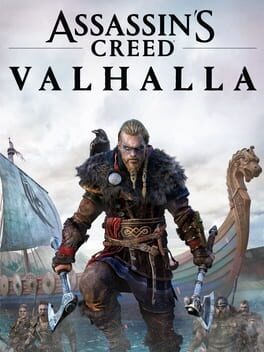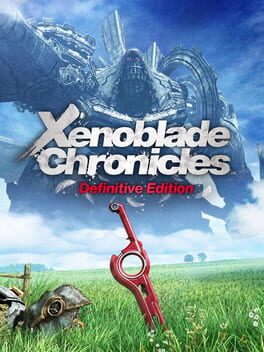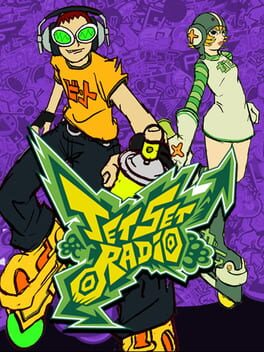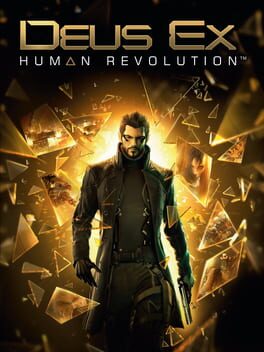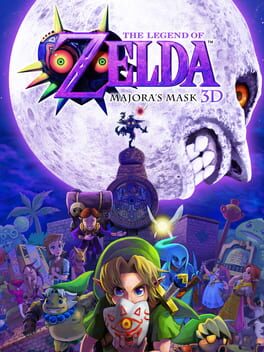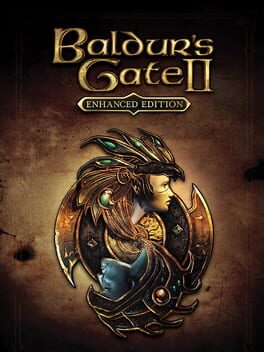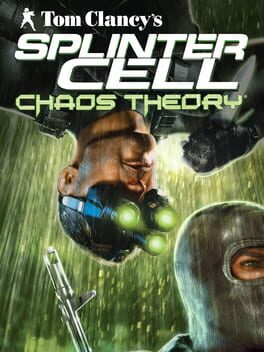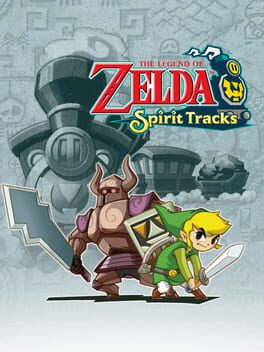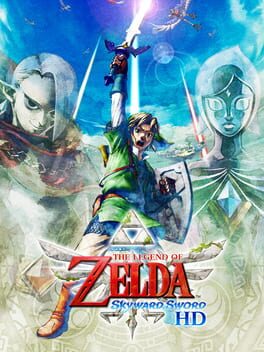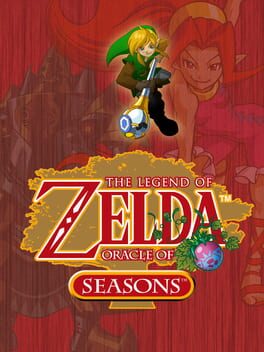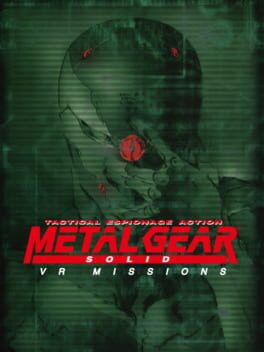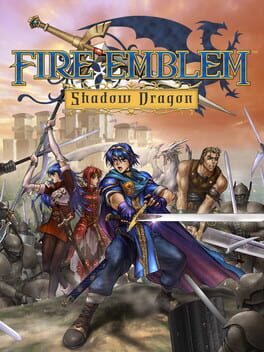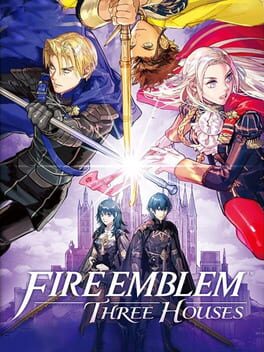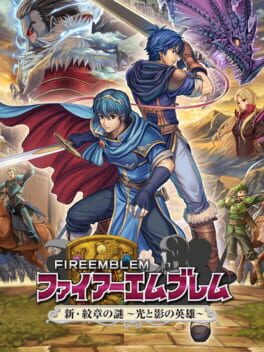Parallax_M
BACKER
This is probably the most pointlessly bloated and bland AAA game ive ever played. It’s offensively bloated. After playing it I felt duped by a game that did not respect my time. I felt like an asshole. I don’t have any other words for it. This game made me feel like an absolute asshole for wasting any of my time on it.
ADDENDUM: Vindicating to see how infamous the bloat in this game has become since its release. Even people who like it seem to acknowledge that it’s too big for its own good. Absolutely hilarious to me that Ubisoft kept updating this game with live events, free side quests, and massive paid DLC campaigns, which caused the completion time to balloon an unprecedented 200+ hours. Add to this the fact that the new content has substantially increased the size of the already absurd 300+ level skill tree where each level up allows you to pick from stuff like +0.25% light attack or +0.25% assassination strength. Funniest shit I’ve ever seen. I’d like to say that the people at Ubisoft are fools for thinking anyone would want to sink that much time into such a tedious game but they correctly anticipated that people would eat this shit up despite it being so tedious - myself included. If there’s any bright side to this, Valhalla at least prompted me (and seemingly other people as well) to be a bit more discerning about what games are worth our time and effort.
Is this the straw that breaks the camels back for Ubisoft’s terrible open world design? The release of Mirage might lead one to think so, but I highly doubt it. I think it’ll take something even worse than Valhalla - something that actually flops spectacularly - to make them actually change their open world design philosophy.
ADDENDUM: Vindicating to see how infamous the bloat in this game has become since its release. Even people who like it seem to acknowledge that it’s too big for its own good. Absolutely hilarious to me that Ubisoft kept updating this game with live events, free side quests, and massive paid DLC campaigns, which caused the completion time to balloon an unprecedented 200+ hours. Add to this the fact that the new content has substantially increased the size of the already absurd 300+ level skill tree where each level up allows you to pick from stuff like +0.25% light attack or +0.25% assassination strength. Funniest shit I’ve ever seen. I’d like to say that the people at Ubisoft are fools for thinking anyone would want to sink that much time into such a tedious game but they correctly anticipated that people would eat this shit up despite it being so tedious - myself included. If there’s any bright side to this, Valhalla at least prompted me (and seemingly other people as well) to be a bit more discerning about what games are worth our time and effort.
Is this the straw that breaks the camels back for Ubisoft’s terrible open world design? The release of Mirage might lead one to think so, but I highly doubt it. I think it’ll take something even worse than Valhalla - something that actually flops spectacularly - to make them actually change their open world design philosophy.
2013
A good game for all the reasons you’ve probably heard. My only complaint is about the length required to beat the game and do most of the side content. As I’ve gotten older the prospect of a game that I can sink close to 200 hours into has gotten less and less attractive. When a game is that long, I tend to become more and more critical of whether or not the game is truly worth my time. The main campaign definitely is. I’d probably suggest limiting yourself to only doing some if any of the side content. If you try to do all of it you’ll start to realize that a good portion of it is pretty repetitive and boring. The rest of the game is a quality experience so you definitely don’t want to burn yourself out on lesser side content and end up shelving it.
2012
One of the most charming games of all time. Everything about its aesthetic and general vibe makes me smile. The soundtrack is also fantastic. Gameplay could be a bit more polished. It mostly feels good but you’ll run into occasional moments of jank. This is another game that’s greater than the sum of its parts however. It’s hard not to love something that’s so creative, stylish, and unabashedly specific in its design. All of this elevates something that would otherwise be merely a fun romp into something unforgettable and truly special.
Random note: this game also has the humorous honor of having a tutorial that’s probably harder to beat than any normal level in the game. The tutorial is thankfully not required to progress. You’ll see what I mean if you try to get the steam achievement for beating it.
Random note: this game also has the humorous honor of having a tutorial that’s probably harder to beat than any normal level in the game. The tutorial is thankfully not required to progress. You’ll see what I mean if you try to get the steam achievement for beating it.
Your enjoyment of this game will be greatly enhanced if you go into it without the expectation of it replicating the openness of Deus Ex or other immersive sims. I would call this game a light immersive sim - it possesses many trademarks of the genre, namely the ability to approach levels in multiple different ways but does so in a manner that’s simpler than games like the original deus ex, dishonored or even something outside of the genre like splinter cell: chaos theory.
The game, however, is still very enjoyable. It has a pretty decent story, which while not as creative or complex as the original deus ex, holds together well and keeps your attention and curiosity throughout. The aesthetic design of the game is also great. It does the cyberpunk aesthetic pretty well and puts its own unique spin on things with the renaissance elements blended in. I’ve definitely never seen that combination before and it works quite well.
Gameplay is very enjoyable despite its shortcomings. Stealth and gun play both feel great - very balanced and responsive. Nailing both is definitely to be commended given the fact that many games that try to incorporate both can only do one well. Exploration is also enjoyable and replicates some of the sense of discovery the original provided. However, the general lack of meaningful rewards for exploration causes it to lose its luster by the end of the game. Most of your rewards for exploring will be useless hacking supplies as opposed to rare weapons or upgrades.
Overall the game is quite fun but doesn’t really excel at anything. If I could give more specific ratings I’d probably give this game a 7.7 or 7.6. It’s creative and fun enough to stand out and be memorable but not quite good enough be considered a classic of either it’s genre or generation.
As a final thought - this game came out in 2011, a time when the term “immersive sim” was likely unknown to your average console gamer. I was in this camp when HR came out, and I can remember the immersive sim elements of it absolutely blowing my 15 year old mind. This game does somewhat unexpectedly hold a very special place in many hearts and I think this is why: it was like nothing else being released at the time and was probably the first immersive sim for a lot of gamers. Many of those gamers, myself included, went on to play and love the classics on the genre, which does unfortunately cause Human Revolution to lose much of its luster. While Human Revolution probably won’t be remembered much in the future for the quality of its story or gameplay, I do hope it’s remembered for it’s role in introducing the immersive sim genre to a new generation of gamers.
Although if I’m being realistic it‘ll probably be most remembered for the eternal words of Adam Jensen, “I never asked for this.”
The game, however, is still very enjoyable. It has a pretty decent story, which while not as creative or complex as the original deus ex, holds together well and keeps your attention and curiosity throughout. The aesthetic design of the game is also great. It does the cyberpunk aesthetic pretty well and puts its own unique spin on things with the renaissance elements blended in. I’ve definitely never seen that combination before and it works quite well.
Gameplay is very enjoyable despite its shortcomings. Stealth and gun play both feel great - very balanced and responsive. Nailing both is definitely to be commended given the fact that many games that try to incorporate both can only do one well. Exploration is also enjoyable and replicates some of the sense of discovery the original provided. However, the general lack of meaningful rewards for exploration causes it to lose its luster by the end of the game. Most of your rewards for exploring will be useless hacking supplies as opposed to rare weapons or upgrades.
Overall the game is quite fun but doesn’t really excel at anything. If I could give more specific ratings I’d probably give this game a 7.7 or 7.6. It’s creative and fun enough to stand out and be memorable but not quite good enough be considered a classic of either it’s genre or generation.
As a final thought - this game came out in 2011, a time when the term “immersive sim” was likely unknown to your average console gamer. I was in this camp when HR came out, and I can remember the immersive sim elements of it absolutely blowing my 15 year old mind. This game does somewhat unexpectedly hold a very special place in many hearts and I think this is why: it was like nothing else being released at the time and was probably the first immersive sim for a lot of gamers. Many of those gamers, myself included, went on to play and love the classics on the genre, which does unfortunately cause Human Revolution to lose much of its luster. While Human Revolution probably won’t be remembered much in the future for the quality of its story or gameplay, I do hope it’s remembered for it’s role in introducing the immersive sim genre to a new generation of gamers.
Although if I’m being realistic it‘ll probably be most remembered for the eternal words of Adam Jensen, “I never asked for this.”
In many ways, Majoras Mask and Ocarina of time are very similar games. From an aesthetic and design perspective they look and feel very similar. All the good things about the gameplay and design of Ocarina of Time are present in full force in Majora's Mask. The emotional experience that MM creates for the player however, could not be more different than that of Ocarina of TIme. Where Ocarina of time tends feel like a fun, relaxing, and balanced experience Majora's Mask often feels like a depressing and bewildering ordeal. This however, isn't neccessarily a bad thing. This is not a relaxing or pleasant game to beat, but it is a very rewarding one to beat. The harsh time limit, the often cryptic nature of side quests, the increased difficulty of dungeons and the dour tone of the game all work towards the common end of producing an experience where the player is meant to struggle and feel helpless. As a player, you're made to experience a lot of the same emotions that characters in the game are feeling. For people who can get past the unwelcoming nature of this game, this produces an intimate connection with the game world and a feeling of investment in your actions that not many games achieve. Most Zelda games aren't much more than very fun and engaging romps that sometimes have emotionally resonant stories that ground and enhance the experience. This is something very different. Majora's Mask is that rare and perfect melding of gameplay, story and characters where all work perfectly together to create something far greater than the sum of its parts. Games like this are often lightning in a bottle. It can be difficult to pin down exactly why it works so well in certain games and not in others, why some games have to settle for being merely great and why others can achieve a transcendent status for many players. Majora's Mask struck lightning for me, and I'm so glad it did.
This game is a step up from BG1 in just about every way. One of the biggest improvements is in player choice and and having multiple ways to approach quests. This was something a bit lacking in BG1. Setting, writing, and pacing is also much better here with companion sidequests being a definite standout. Experience is definitely enhanced by playing BG1 but regardless would rec this game to any and all rpg fans.
Easily one of the best stealth games of all time in terms of gameplay mechanics. Story is typical Tom Clancy fare, which I don't think many people feel too strongly about i.e. easy to like hard to love, but it is presented really well in this game. The same definitely cant be said about the previous two SC games where plot points tend to get rushed over and presented in ways that feel a bit clunky.
Back to the gameplay though because that really is the reason to play this game. Sam Fisher's moveset is expanded upon greatly in this game, giving the player even more infiltration methods to implement. The maps are also far more open ended than in the previous two games which is a very welcome change. In SC 1 and 2 it often felt like there was only one very specific way to progress through a evel. Much of the gameplay loop in those titles ended up being using trial and error to figure out exactly what the game wanted you to do. The gameplay in Chaos Theory is far more creative and gives the player room to react and adapt to changing situations on the fly. Detection in this game also feels much more balanced. I didn't experience any instances where I was spotted in a way that didn't make sense or that felt like a mistake on the game's part. This happened quite a lot in SC 1 and 2.My only major criticism of this game is sections where combat is heavily incentivized over stealth. While the gunplay in this game is serviceable it really pales in comparison to the stealth mechanics. There are parts where the game seemingly requires the player to engage in open combat, which can be a bit frustrating at times. These moments, however, are few and far between and don't do much to bring down an otherwise excellent game.
The concept for the Splinter Cell games is honestly pretty genius - down to earth and slow paced stealth games where the player feels capable but always vulnerable. This whole concept does such a good job at creating tension and making progression feel truly earned. There really aren't any stealth games quite like it. The first two Splinter Cell games are weighed down quite a lot by jank and various design choices that don't lend themselves to this overall concept. Playing them could sometimes be a frustrating experience because it really felt like they weren't living up to their potential. Chaos Theory does live up to that potential. It's a a near perfect execution of the Splinter Cell concept and stands as a testament to how brilliant that concept has always been.
Back to the gameplay though because that really is the reason to play this game. Sam Fisher's moveset is expanded upon greatly in this game, giving the player even more infiltration methods to implement. The maps are also far more open ended than in the previous two games which is a very welcome change. In SC 1 and 2 it often felt like there was only one very specific way to progress through a evel. Much of the gameplay loop in those titles ended up being using trial and error to figure out exactly what the game wanted you to do. The gameplay in Chaos Theory is far more creative and gives the player room to react and adapt to changing situations on the fly. Detection in this game also feels much more balanced. I didn't experience any instances where I was spotted in a way that didn't make sense or that felt like a mistake on the game's part. This happened quite a lot in SC 1 and 2.My only major criticism of this game is sections where combat is heavily incentivized over stealth. While the gunplay in this game is serviceable it really pales in comparison to the stealth mechanics. There are parts where the game seemingly requires the player to engage in open combat, which can be a bit frustrating at times. These moments, however, are few and far between and don't do much to bring down an otherwise excellent game.
The concept for the Splinter Cell games is honestly pretty genius - down to earth and slow paced stealth games where the player feels capable but always vulnerable. This whole concept does such a good job at creating tension and making progression feel truly earned. There really aren't any stealth games quite like it. The first two Splinter Cell games are weighed down quite a lot by jank and various design choices that don't lend themselves to this overall concept. Playing them could sometimes be a frustrating experience because it really felt like they weren't living up to their potential. Chaos Theory does live up to that potential. It's a a near perfect execution of the Splinter Cell concept and stands as a testament to how brilliant that concept has always been.
Very mixed bag. Charming story and some very cute Link / Zelda moments. Improved upon PH in terms of dungeon puzzles and bosses which are often fantastic. While the game is at times great, there are things that make it very frustrating. There are an absurd amount microphone blowing mechanics (i dont think i have to explain to DS owners why this would be an issue. God forbid you try to play this on an emulator).
Quite a few otherwise very clever puzzles with phantom zelda also require finicky and annoying interaction with the DS touchscreen. I personally don't mind the stylus control scheme in PH and ST. It isnt ideal but it worked well enough in PH. The combat and movement mechanics in ST are generally more complex, however, especially in sections with Phantom Zelda. This increased complexity really reveals the flaws with the stylus control scheme. You will inevitably run into situations where you know exactly what to do but end up fumbling around with frustrating controls to do it.
Other than this the trains you ride for much of the game are very slow, and you lack means for convenient fast travel like the glyphs in PH. This wouldn't be a big issue if the train travel wasn't widely implemented but its an absolute core part of gameplay. You'll probably be spending 50% of your time in the game or more conducting your train - even more than this if you decide to do the side content, which is pretty much all transporting people and supplies in your train.
Overall this is a very charming and unique game with a lot of potential that gets bogged down by some pretty massive flaws. I would recommend that big Zelda fans play it for at least a couple hours to try it out. If you like it enough to keep going it can be an enjoyable experience. If you find it frustrating don't hesitate to put it down. There are far better Zelda games to spend your time on.
Quite a few otherwise very clever puzzles with phantom zelda also require finicky and annoying interaction with the DS touchscreen. I personally don't mind the stylus control scheme in PH and ST. It isnt ideal but it worked well enough in PH. The combat and movement mechanics in ST are generally more complex, however, especially in sections with Phantom Zelda. This increased complexity really reveals the flaws with the stylus control scheme. You will inevitably run into situations where you know exactly what to do but end up fumbling around with frustrating controls to do it.
Other than this the trains you ride for much of the game are very slow, and you lack means for convenient fast travel like the glyphs in PH. This wouldn't be a big issue if the train travel wasn't widely implemented but its an absolute core part of gameplay. You'll probably be spending 50% of your time in the game or more conducting your train - even more than this if you decide to do the side content, which is pretty much all transporting people and supplies in your train.
Overall this is a very charming and unique game with a lot of potential that gets bogged down by some pretty massive flaws. I would recommend that big Zelda fans play it for at least a couple hours to try it out. If you like it enough to keep going it can be an enjoyable experience. If you find it frustrating don't hesitate to put it down. There are far better Zelda games to spend your time on.
Incredibly underrated game especially when playing the switch remaster with various QoL improvements and button controls. One of the best if not the best story / Link and Zelda dynamics and definitely the best dungeons aesthetically. Puzzles and boss fights are also very strong and above average for the series. More linear than typical Zelda games but if you go in knowing that and dont mind something like that you’ll love this game.
enjoyable and surprisingly expansive set of short challenge missions taking place in a VR landscape. all gameplay, no story. If you love the stealth gameplay of MGS you’ll like this but I cant imagine anyone, even mgs fans really loving this game. worth a shot if youre a fan of the series but if you cant get your hands on it, youre really not missing much
Somewhat of an underrated entry IMO. Very memorable characters which serve as a foundation for the various character achetypes you’ll see in future games. Worth a play for this reason alone if youre an FE fan. Gameplay is good - I like the class change mechanic a lot. allows you to have more gameplay options and prevents the player from messing up their game by leveling the wrong characters. main story is decent but forgetable.
I may be in the minority about this but Dimitri’s route is the best route in this game and one of the best story arcs in the entire FE series. I’d say its tied for best with Genealogy and the Tellius games. Must play and highly recommend you do Dimitri first since its easy to run out of steam on successive playthroughs
Pretty much identical to Shadow Dragon for DS when it comes to UI and gameplay. This game however adds a created player character as the secondary protagnist alongside Marth and also has a more robust support conversation mechanic for bonding with your troops. Story is sort of a retread of Shadow Dragon but about as engaging as that game’s story - which is to say good enough. Play this game for the characters and gameplay not the main story.
